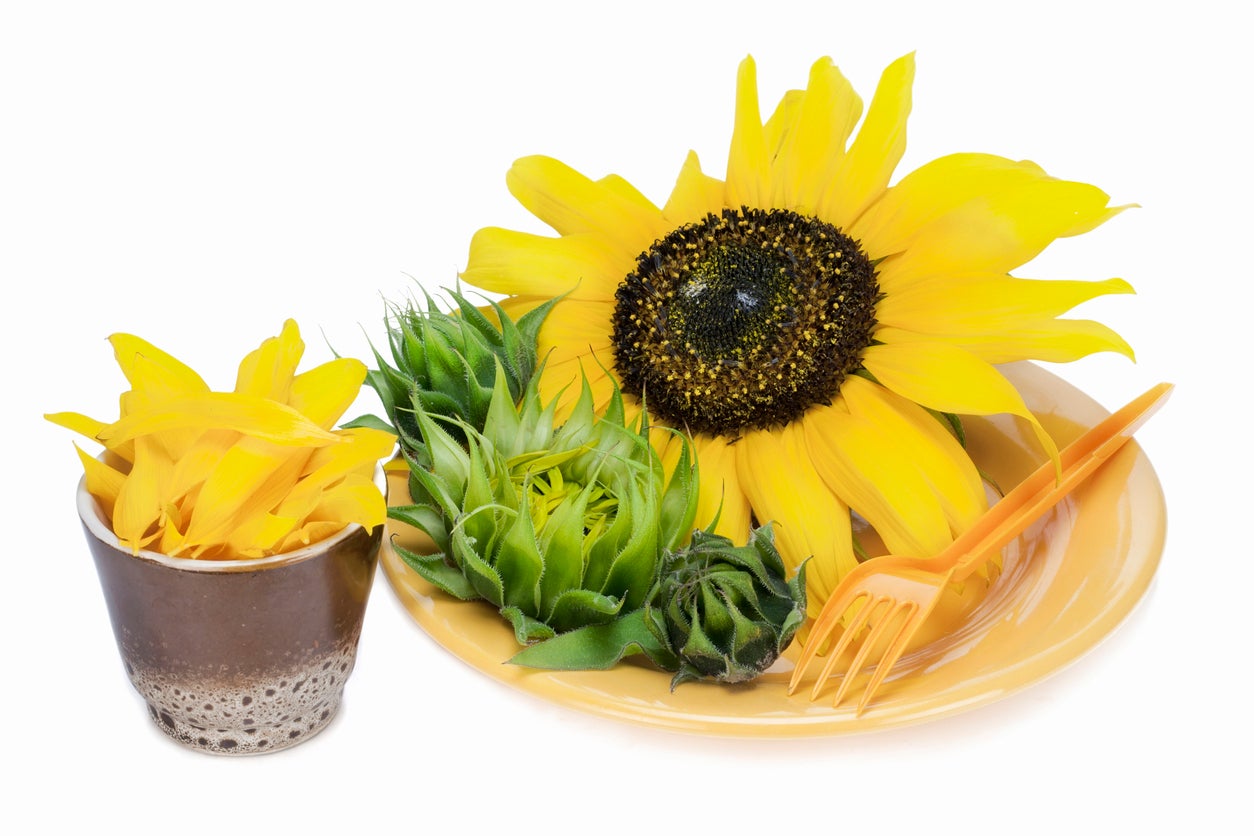Are Sunflowers Edible: How To Use Edible Sunflowers From The Garden


Sign up for the Gardening Know How newsletter today and receive a free copy of our e-book "How to Grow Delicious Tomatoes".
You are now subscribed
Your newsletter sign-up was successful
Growing sunflowers is great. These stately, tall flowers produce stunning, large, regal blooms. Can you eat a sunflower though? You know you can eat sunflower seeds, but if you grow these fun plants you may have wondered if you can eat the actual flowers too. We’ve got the answer for you.
Are Sunflowers Edible?
Most people grow sunflowers simply for their statuesque nature and cheerful, large flowers. You may also grow them to eat the seeds. Sunflower seeds are tasty and nutritious. Of course, they are also grown on a large scale to make oil, but you can even make a delicious seed butter out of sunflower seeds.
Did you know that you can actually eat much more of the plant than just the seeds? This includes the flowers. You can enjoy both the buds of sunflower plants and the petals of mature blooms. The greens are also edible. Sunflower sprouts are delicate, while the older leaves can be a little tough and fibrous.
How to Use Edible Sunflowers
Eating sunflower buds will mean you don’t get as many big blooms, but they are pretty tasty. Consider growing some extra so you can try them in the kitchen. The buds are best cooked; try lightly steaming or blanching. Toss in butter with a little garlic and salt for a simple vegetable side dish that tastes like artichoke. Just be sure to remove the greens from around the base of the bud before cooking.
The petals of sunflowers are also edible. Pluck them individually to toss into salads. The flavor is unique, described as bittersweet or a little nutty. They make a nice contrast to other flavors in salads. When eating sunflower petals, leave them raw so you don’t lose the flavor and texture.
Sunflower sprouts taste fresh and green, perfect for salads or a topping on stir fries and soups. Use the older leaves as you would other greens: boiled, steamed, and sautéed. Remove the center rib before cooking, as it can be pretty tough.
Sign up for the Gardening Know How newsletter today and receive a free copy of our e-book "How to Grow Delicious Tomatoes".

Mary Ellen Ellis has been gardening for over 20 years. With degrees in Chemistry and Biology, Mary Ellen's specialties are flowers, native plants, and herbs.